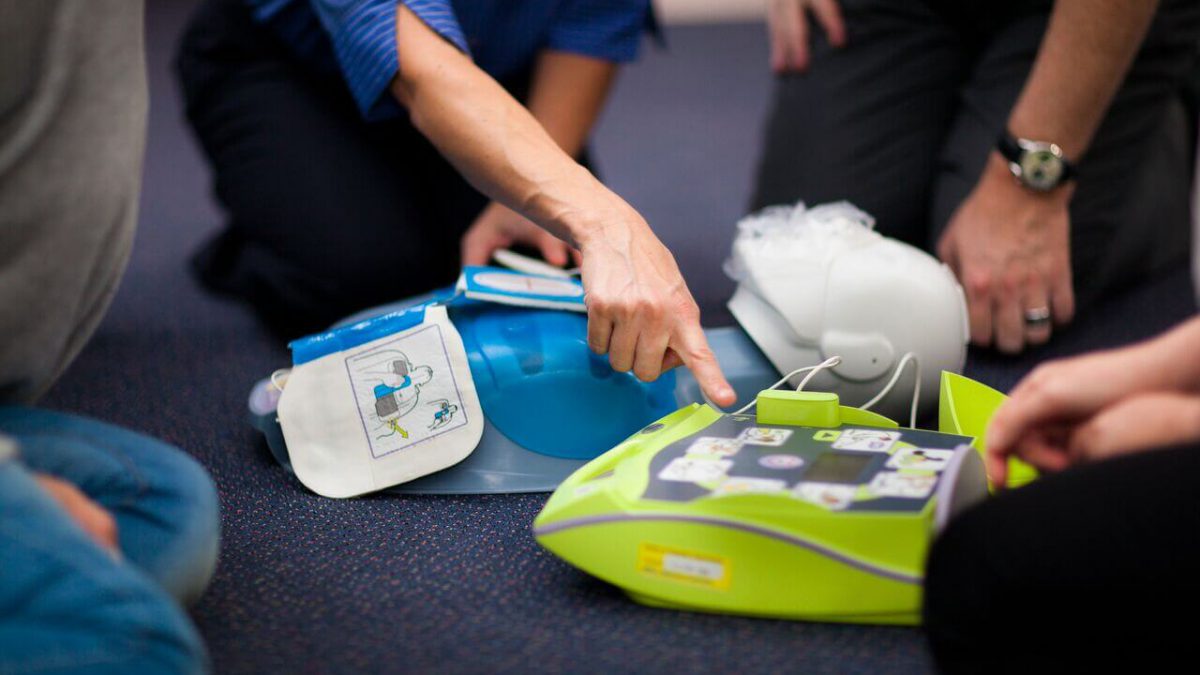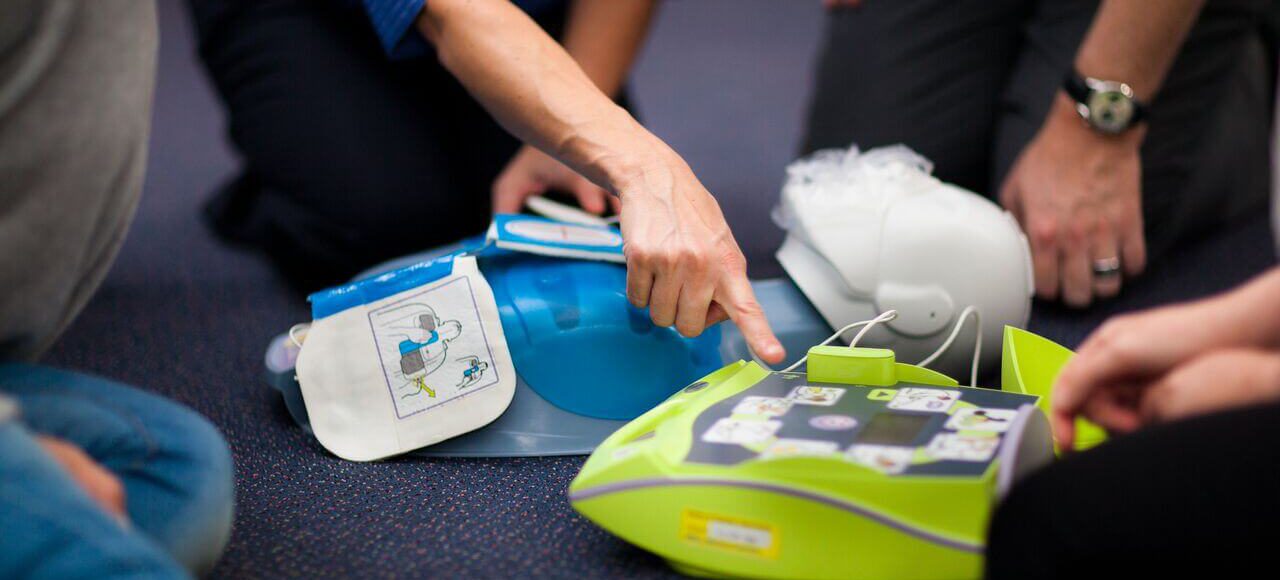Demystifying Defibrillators
You’ve seen them hanging around in shopping centres, community clubs or maybe even at the gym. But what are they, and who are they for?

Automated External Defibrillators (AEDs) are potentially life-saving devices that deliver electric currents to the heart of a person experiencing a sudden cardiac arrest (SCA). Once a user connects the device via adhesive electrode pads, the currents disrupt the heart’s chaotic rhythm, allowing it to return to normal and continue to pump oxygenated blood to vital organs.
It all sounds rather technical, but there’s a reason these devices are made so accessible to so many.
As many as 33,000 Australians will suffer from a SCA in 2016 alone. Tragically, less than 5% will survive outside of a hospital environment. CPR in conjunction with defibrillation, is the only effective treatment for a cardiac arrest victim.
A SCA can happen to any one of us at any age, and often without prior warning – something Premium Health’s Training Manager and experienced paramedic Tom Howell knows all too well.
“A common misconception is that SCAs only happen to older less-than-healthy folk, and that’s just not the case. Young, fit people with undiagnosed congenital heart conditions are also susceptible. That’s why we’re passionate about sharing the message that learning CPR, in conjunction with defib, is a vital life skill for all Australians.”
- Sudden Cardiac Arrests (SCAs) are a leading cause of death in Australia
- SCAs can happen to anyone – even young, fit people
- 75% of SCA sufferers will need defibrillation in conjunction with CPR to survive
- Every minute that passes without adequate CPR/defib reduces SCA survival by 10%
According to the Heart Foundation, SCAs account for over 10% of Australian deaths per year. And when someone does experience a SCA, every minute counts.
“Every 60 seconds that passes reduces a SCA sufferer’s chance of survival by 10%. And, after three minutes, there’s a real risk of permanent brain damage due to a lack of oxygenated blood reaching the brain. The reality is that paramedics can’t always be there in those critical first few minutes when a SCA starts to take hold – so it’s up to the public to be prepared and help professional responders do their job.”
While it’s comforting to know that potentially life-saving equipment is at our fingertips during our weekly shop, an AED device is only effective if it’s in the right hands at the right time.
“The more defib devices and defib-confident people out there, the better our chances of reversing our nation’s SCA death toll. At Premium Health, we recommend every workplace and community group invest in their own AED, along with a defib workshop.”
Premium Health’s defibrillator training
Premium Health’s Defibrillator Awareness Session is designed to develop the knowledge and skills required to provide CPR and administer AED until medical assistance arrives, ultimately ensuring the best chance of survival for those suffering from a SCA.
Over the course of two hours, an experienced nurse or paramedic trainer will provide you with a detailed understanding of the cardiovascular system, critical incident management, First Aider responsibilities, infection control and the effective resuscitation of people of all ages, from infants to the elderly.
For further information call 1300 721 292.
